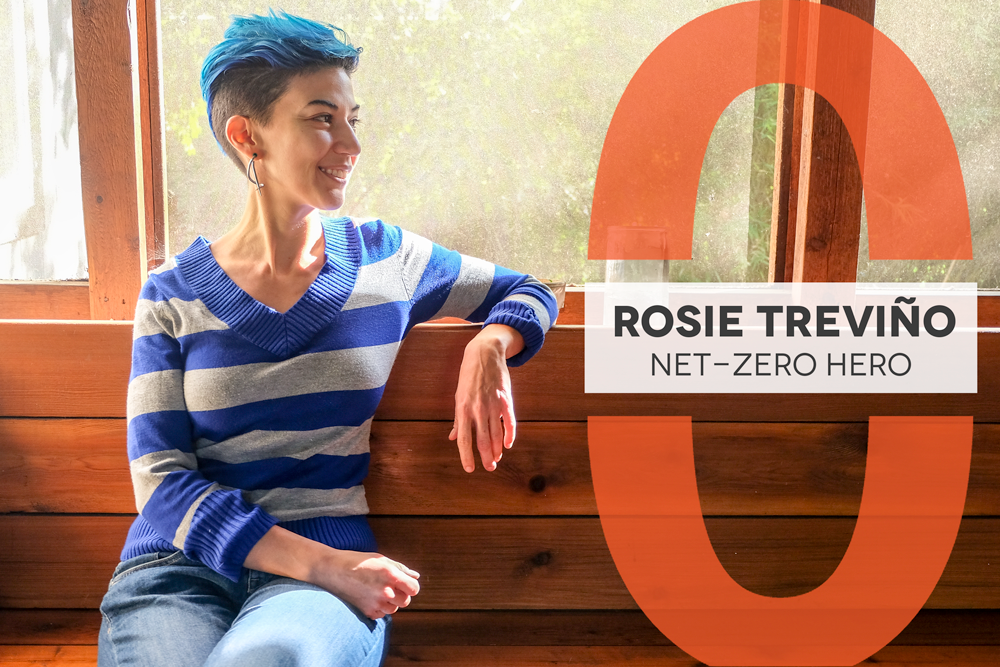Net-Zero Hero: Rosie Treviño
I’m helping to make Austin Net-Zero by reducing, reusing, and getting creative with food!
Meet Rosie Treviño, our newest Net-Zero Hero! Rosie loves to cook and gets creative in the kitchen, working to ensure that no food goes to waste. She was originally inspired by Chef Dan Barber’s concept WastED, in which he creates delicious dishes out of often ignored or devalued ingredients. The way Rosie uses her food scraps to create tasty food left us inspired and excited to share her methods with others.
We visited Rosie’s kitchen to speak with her about her commitment to Net-Zero, what her toughest challenges have been, and what advice she has for others looking to cook net-zero.
What inspired you to take action?
I love to cook, and it’s a passion of mine to use food to its full potential. That means getting really creative in the kitchen by using what would normally be considered waste or compost and turning it into a candy, condiment, or food flavoring.
How did you do it?
While cooking, I save all of the scraps from the fruits and vegetables I use to make things like fruit roll-ups (no additional sugar needed!), vegetable stock, candied orange peel, and veggie chips. I also make my own sourdough starter to make delicious sourdough breads, and repurpose spices in different ways. For example, I use vanilla pods to create vanilla sugar or syrup infusions for cocktails and other drinks. Since the holidays are coming up, I’ll also mention that this is a great way to create unique (and zero-waste) gifts for others!
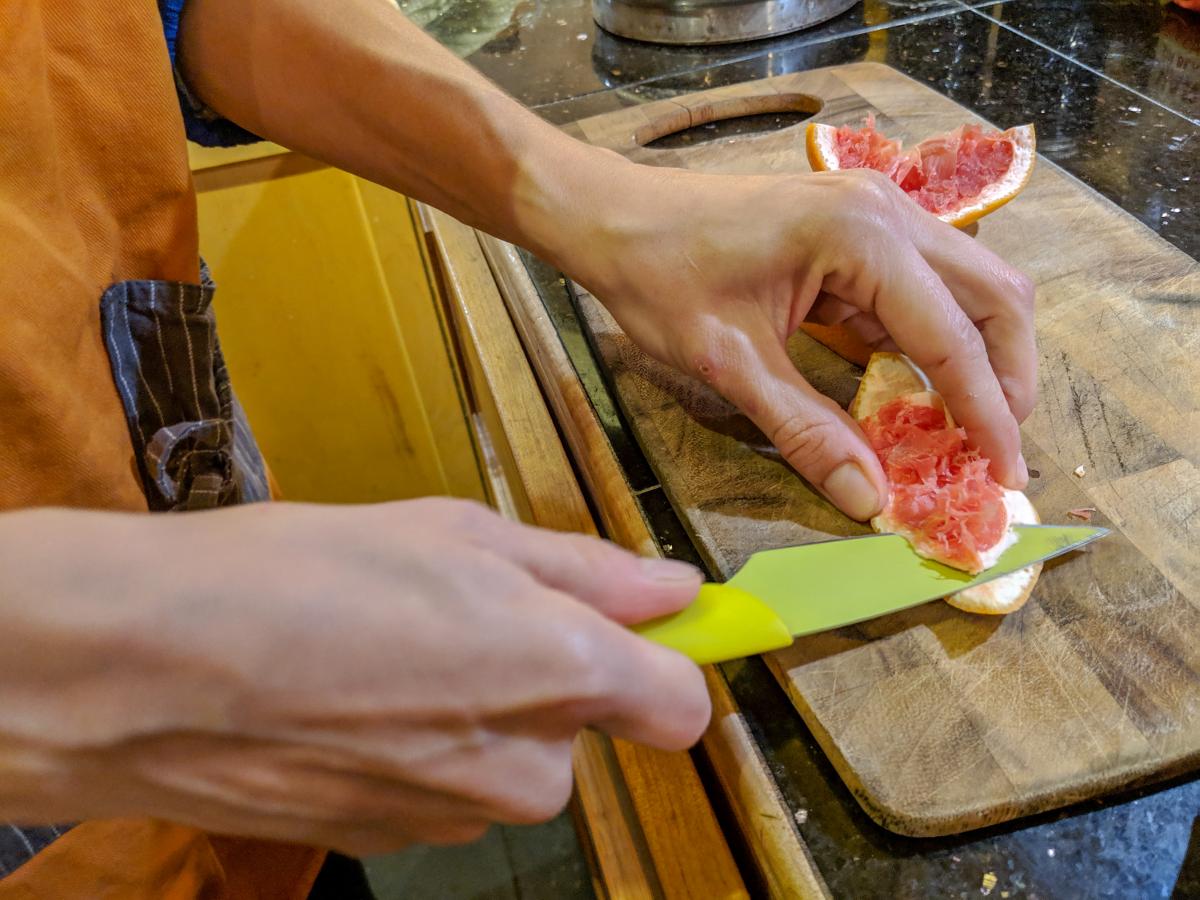
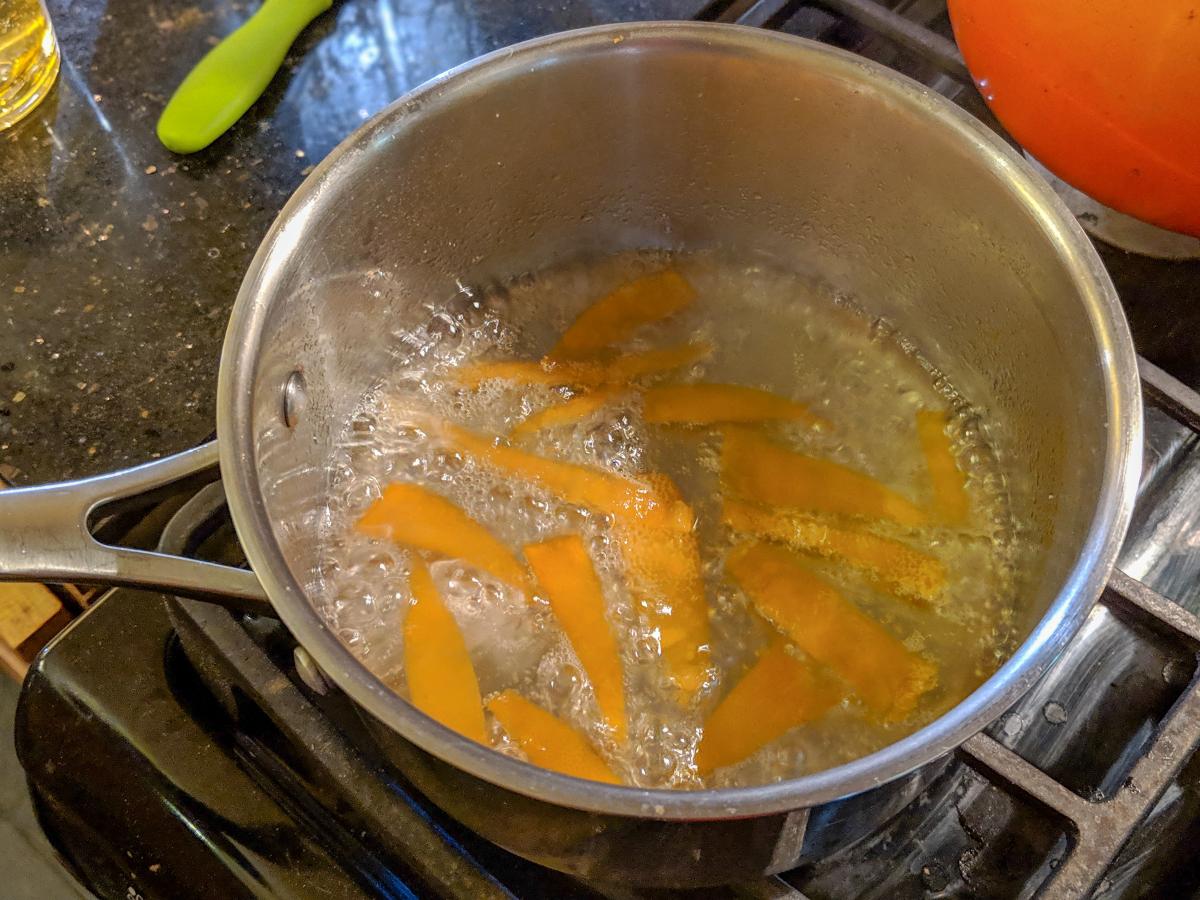
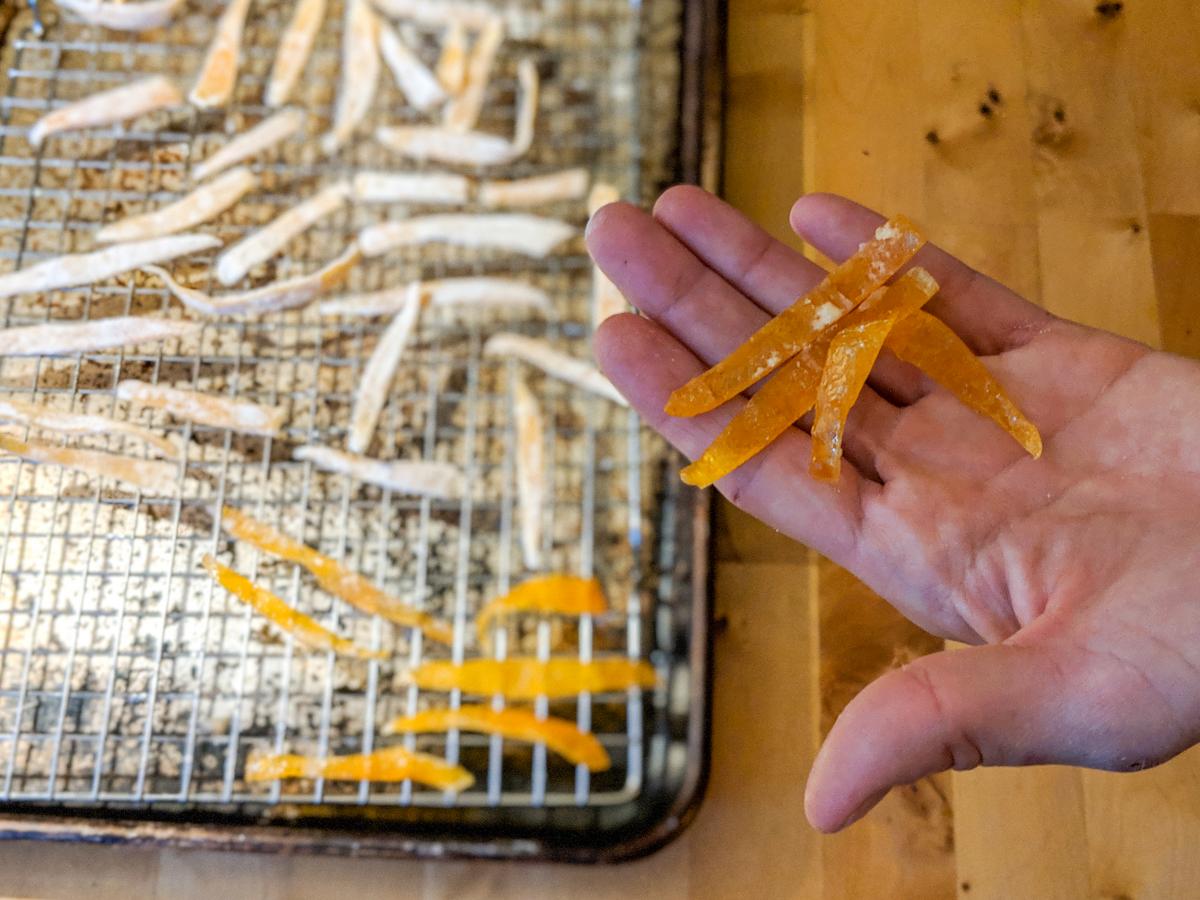
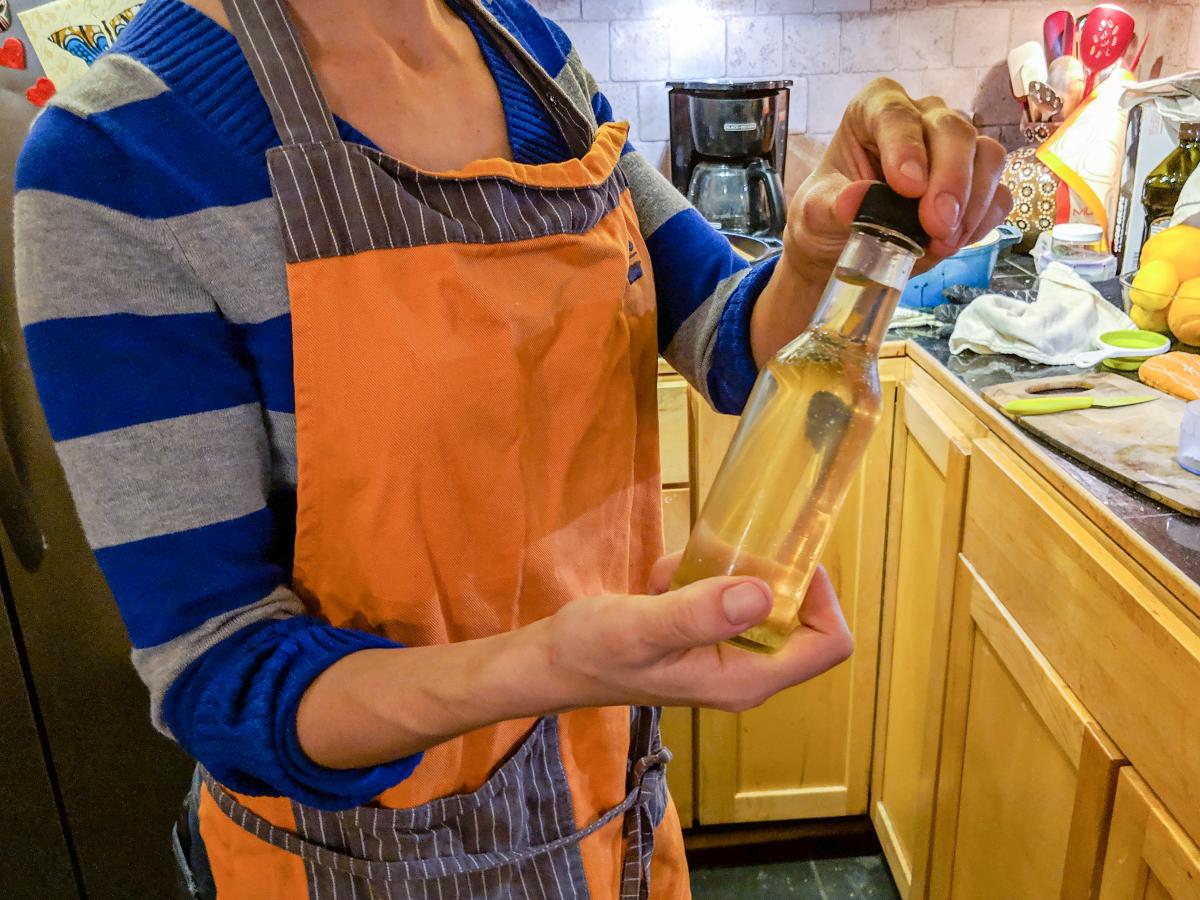
Rosie shows how to make candied citrus peel with leftover citrus skins. She also saves the leftover citrus-infused sugary water to flavor cocktails. Here's how to make candied citrus peel.
What's been the toughest part?
Many food items are treated with pesticides, so I always make sure the products I use are organic, which can get pricey. It's also easy to forget about items in the back of the fridge, so I take steps to ensure the food doesn't spoil by writing an expiration date on the storage container. Lastly, I have to get creative with fridge, freezer, and pantry space when saving things such as used vanilla bean pods, used cinnamon sticks, or veggie scraps for that delicious vegetable stock. These culinary experiments can take up a lot of space in the kitchen!
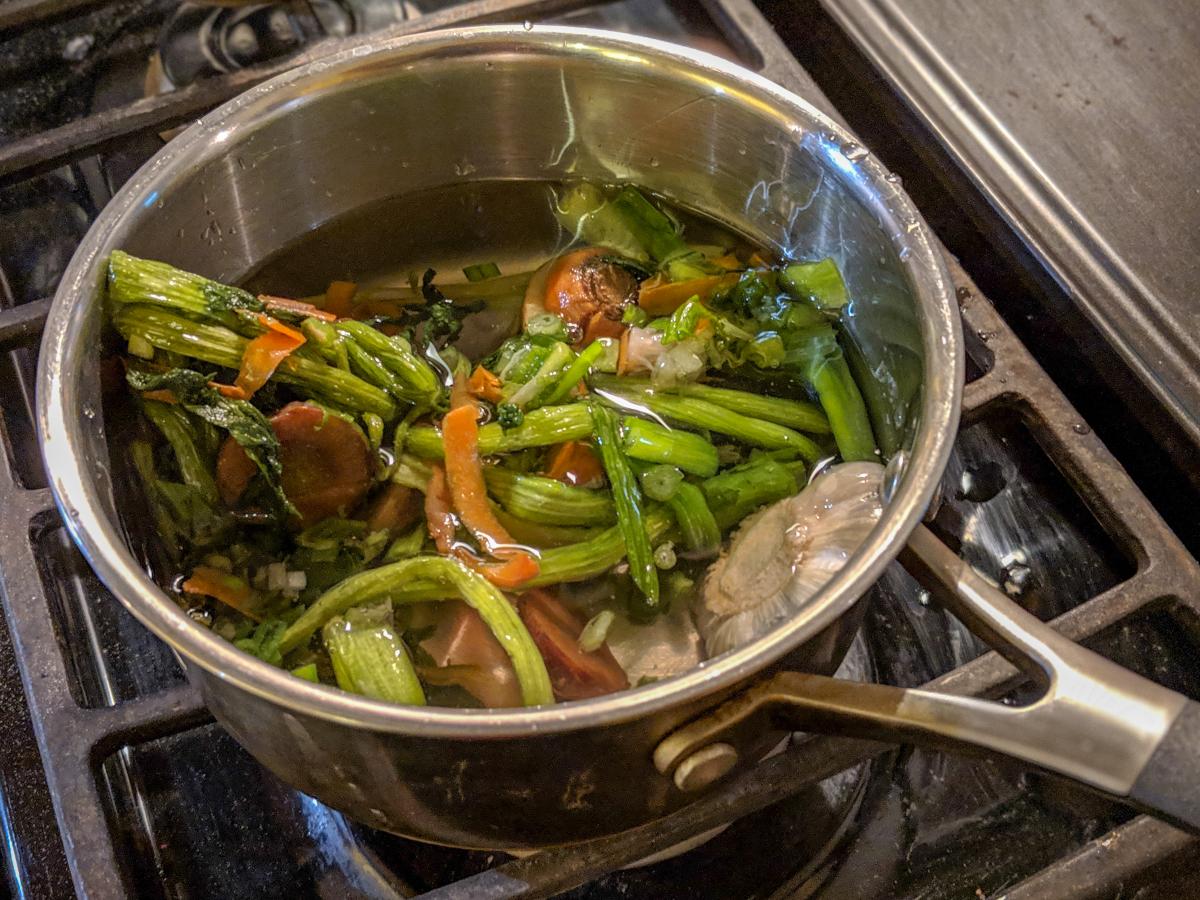
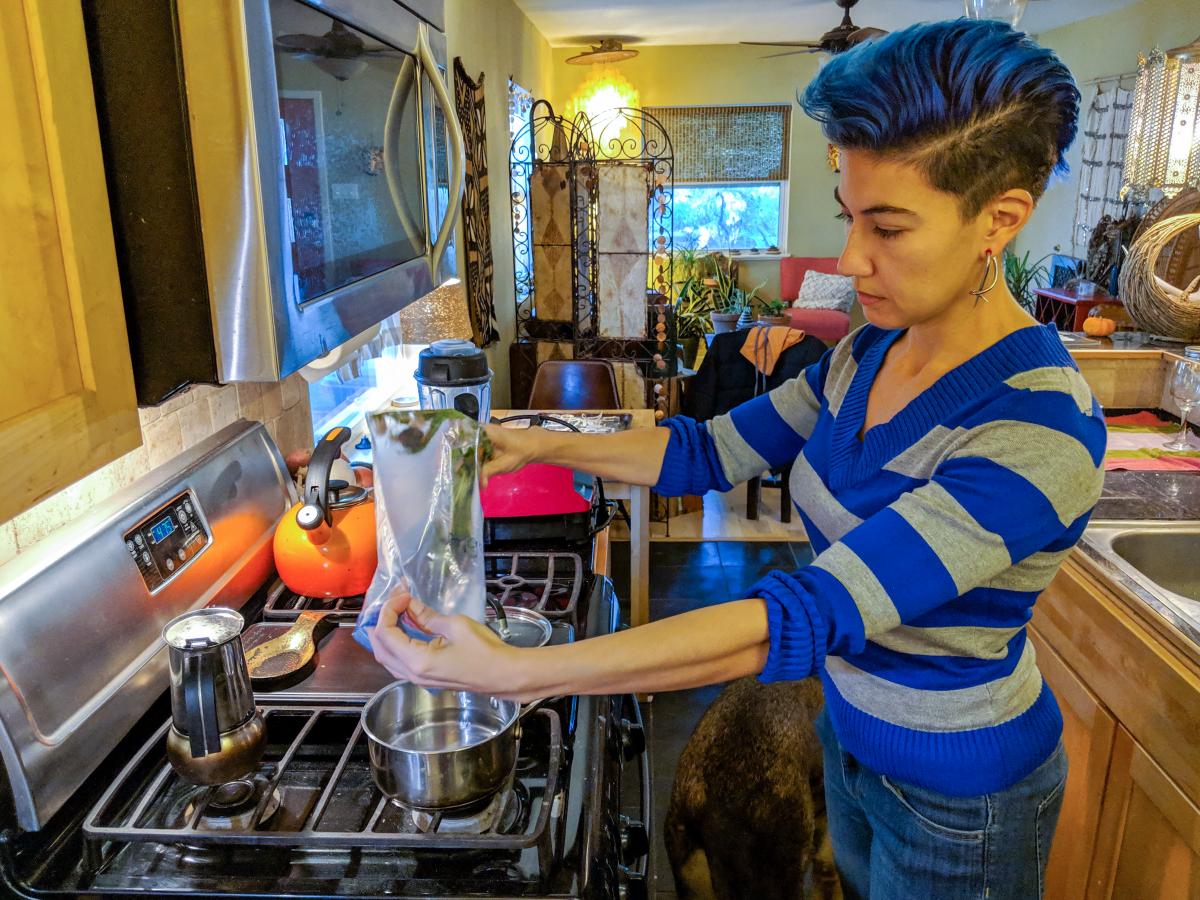
Rosie makes veggie stock from saved vegetable scraps. She stores the scraps in the freezer until she's ready to make stock. See how to make veggie stock from scraps.
Have there been any unexpected benefits?
The greatest reward is creating something delicious from produce that would have been discarded as trash or compost. It’s always satisfying to see the development process of your creations, from an idea to an edible, and to have celebrated and respected a food to its full potential. You learn a lot about the history of a spice or the chemistry behind the fermentation of your starter. It’s incredible when your kitchen smells of fresh bread, or you can indulge in a citrus peel that may help settle your stomach as well as satisfy your sweet tooth.
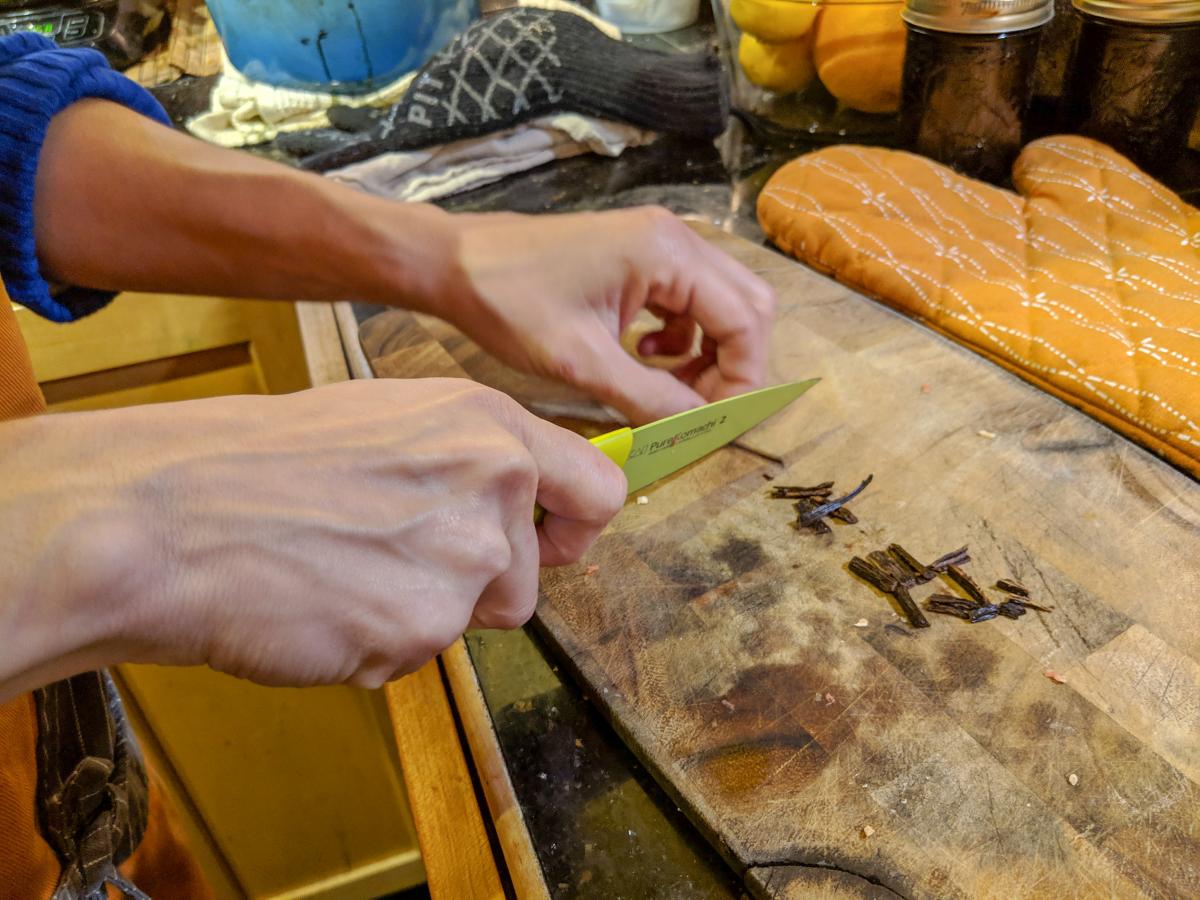
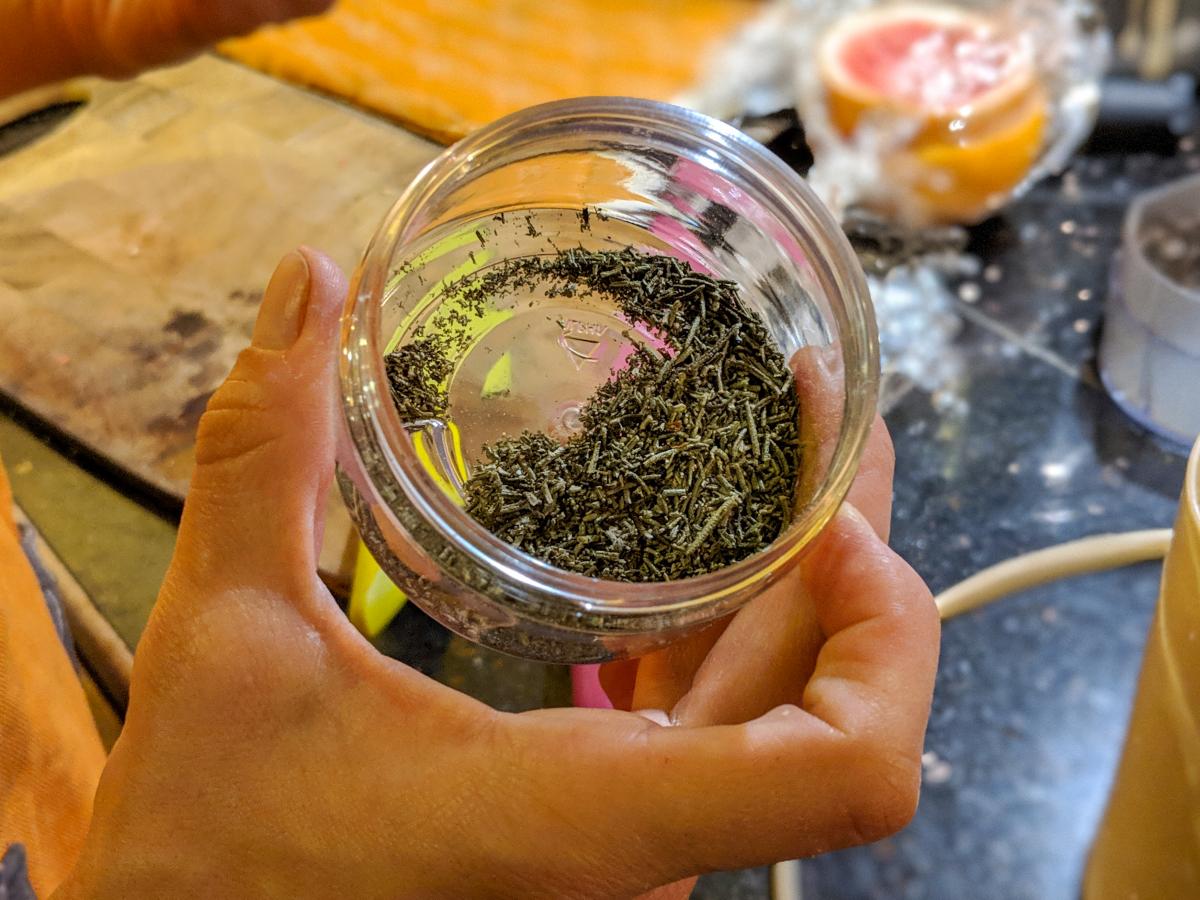
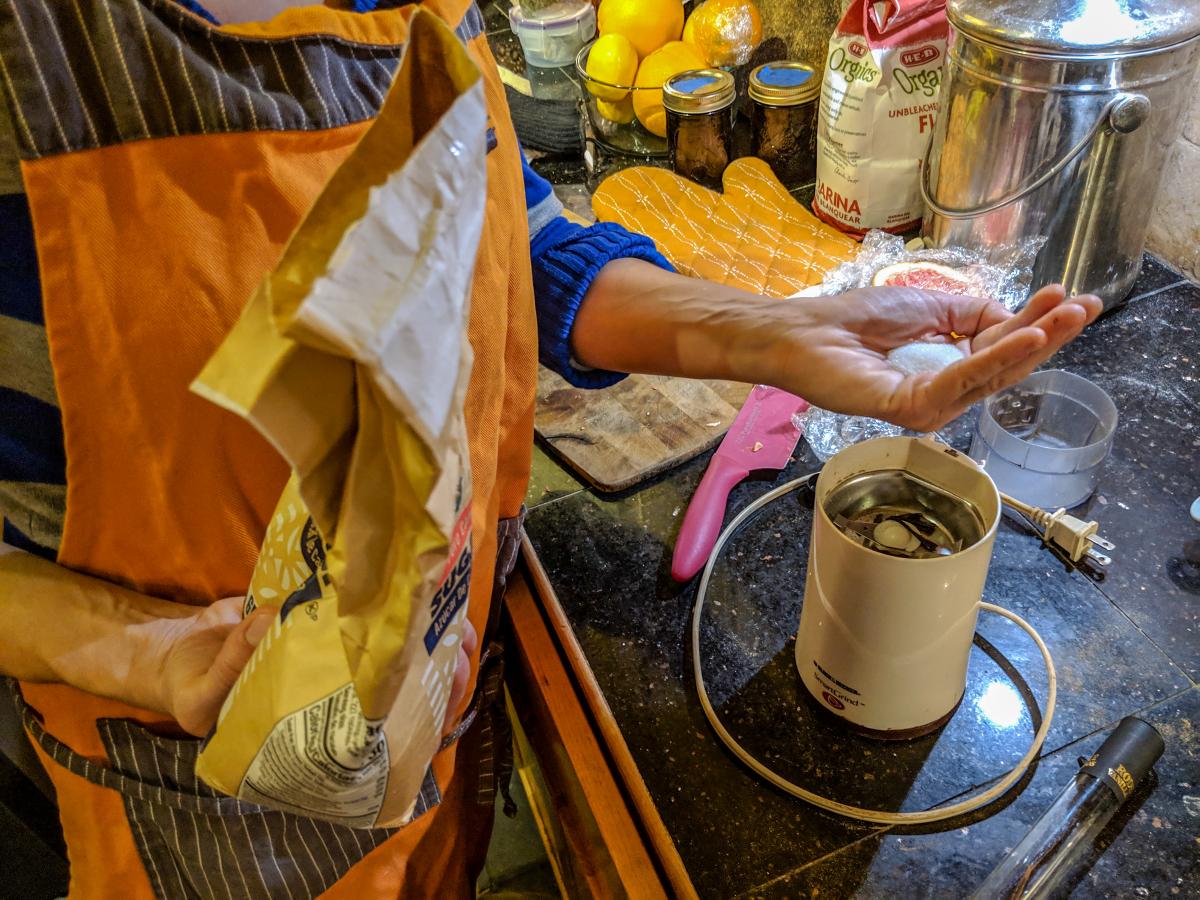
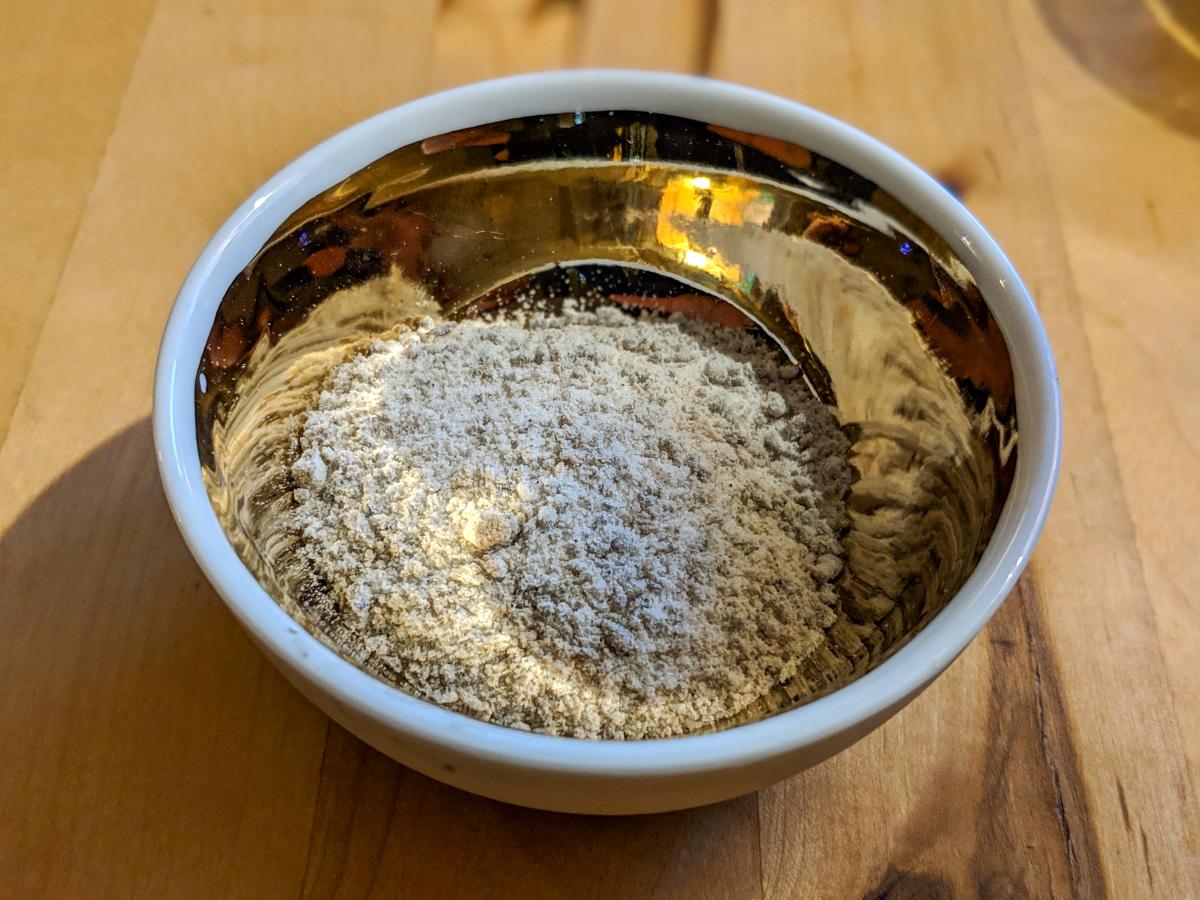
Rosie creates homemade vanilla sugar using a spice grinder. She blended granulated sugar with sliced vanilla pods to make the sugar. Then, she used the finished product to coat her orange peels.
What advice do you have for others?
Go beyond what a recipe calls for and challenge yourself to get inventive with all ingredients! Be courageous, creative, and patient when it comes to experimenting in the kitchen.
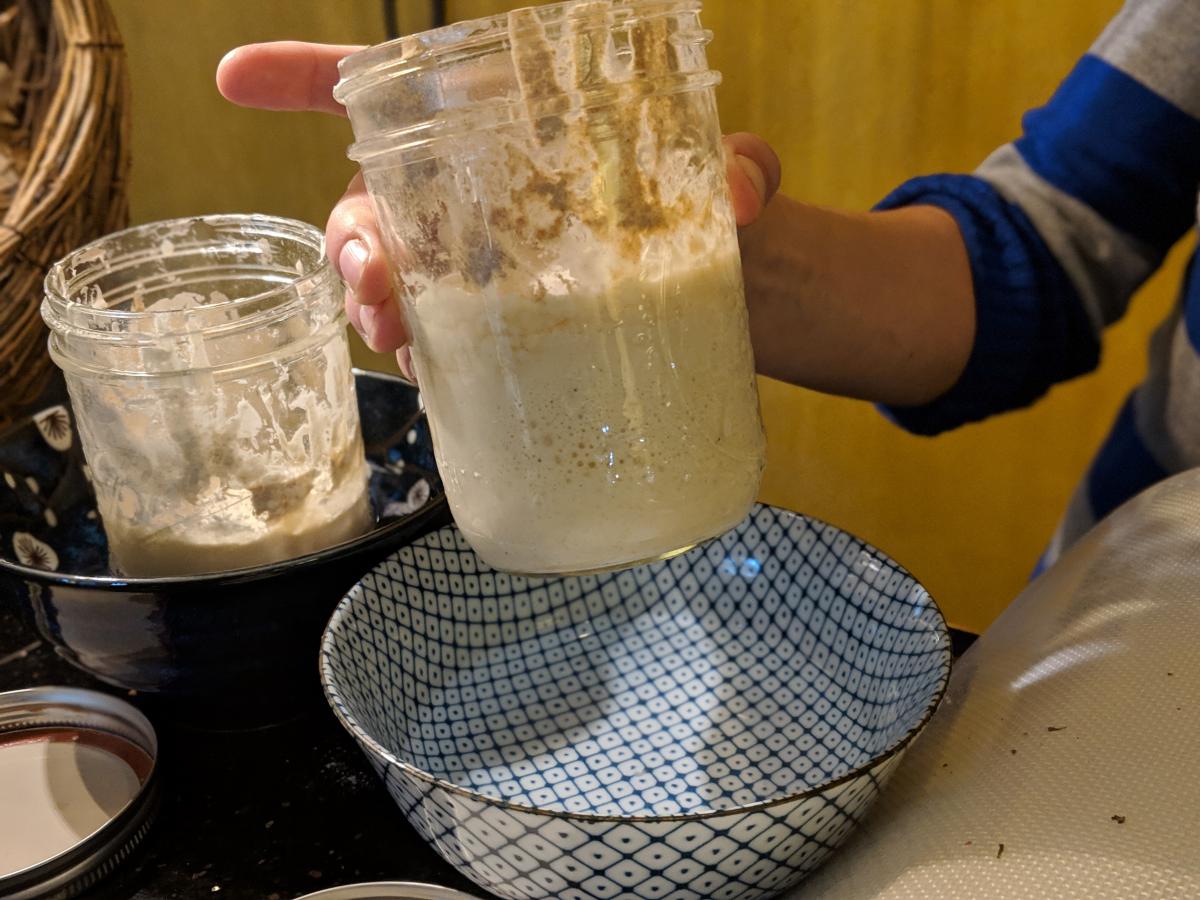
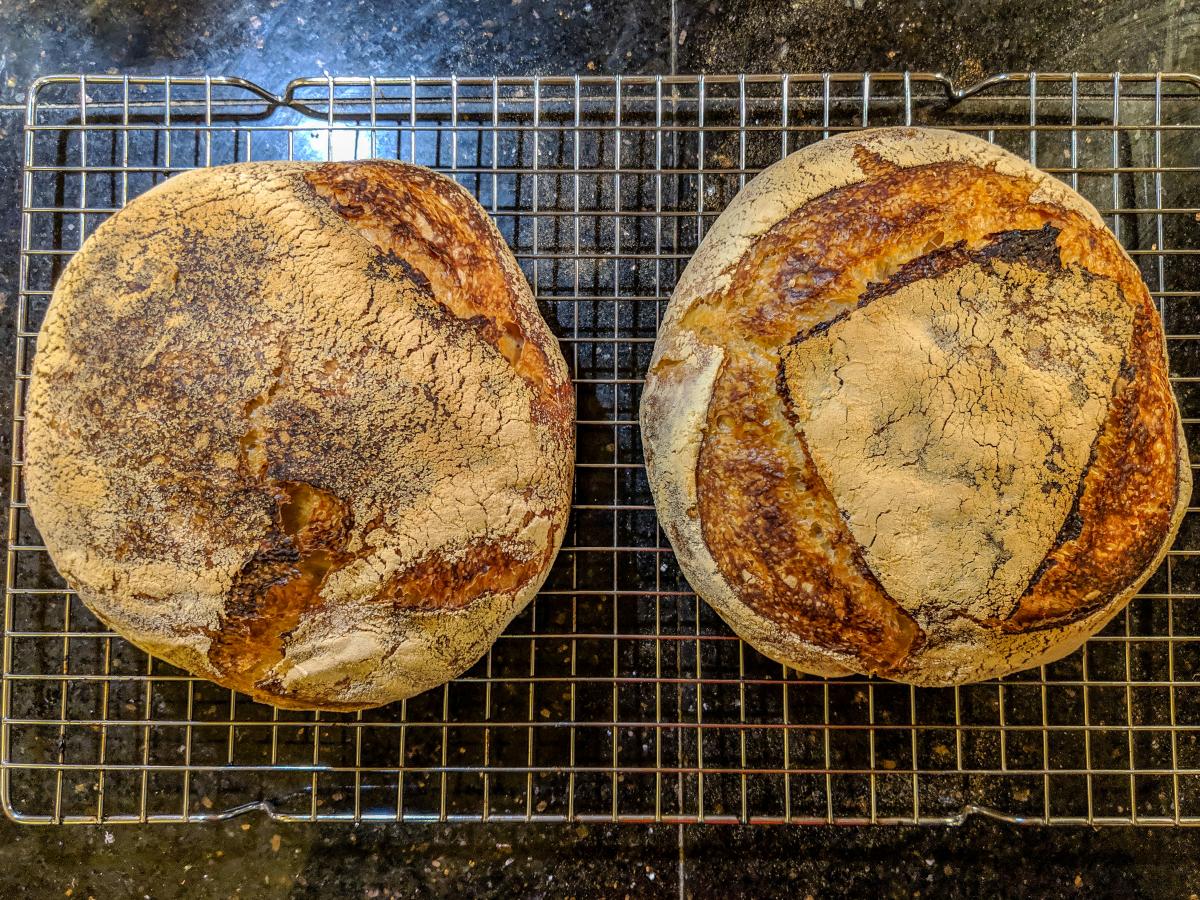
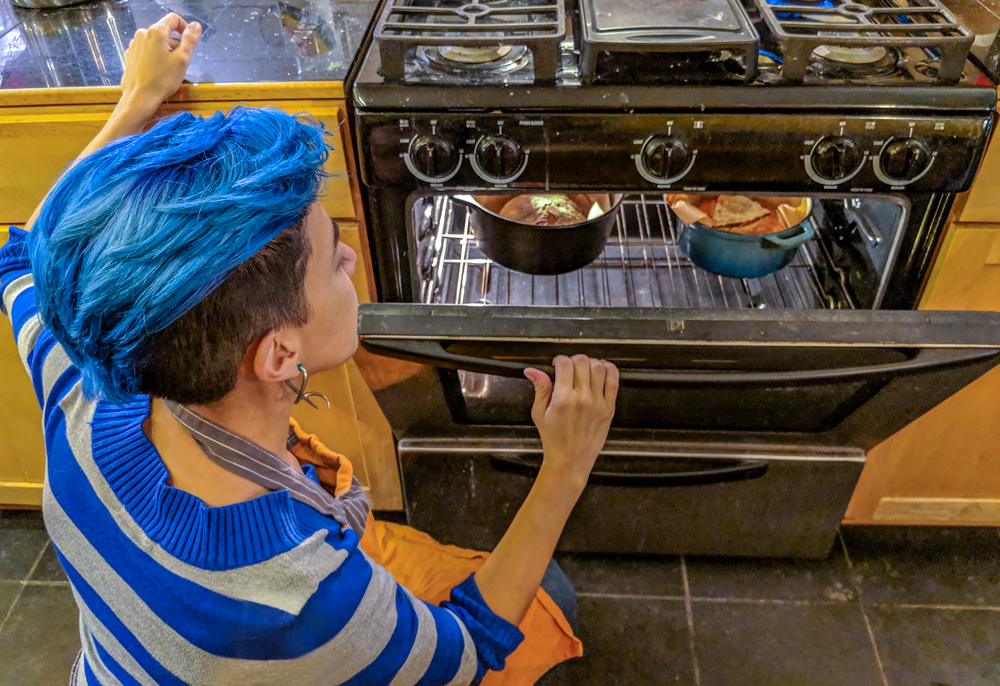
Rosie bakes sourdough bread using a starter. Learn how to make your own starter.
To learn more about Austin's net-zero goal and the actions you can take to support a greener community, view the Austin Climate Equity Plan.
Share your Net-Zero contributions with us on X (formerly Twitter) or Facebook, and use #NetZeroHero. If you know a Net-Zero Hero (or heroes!) who should be recognized for their efforts, send your nomination to climate@austintexas.gov.


